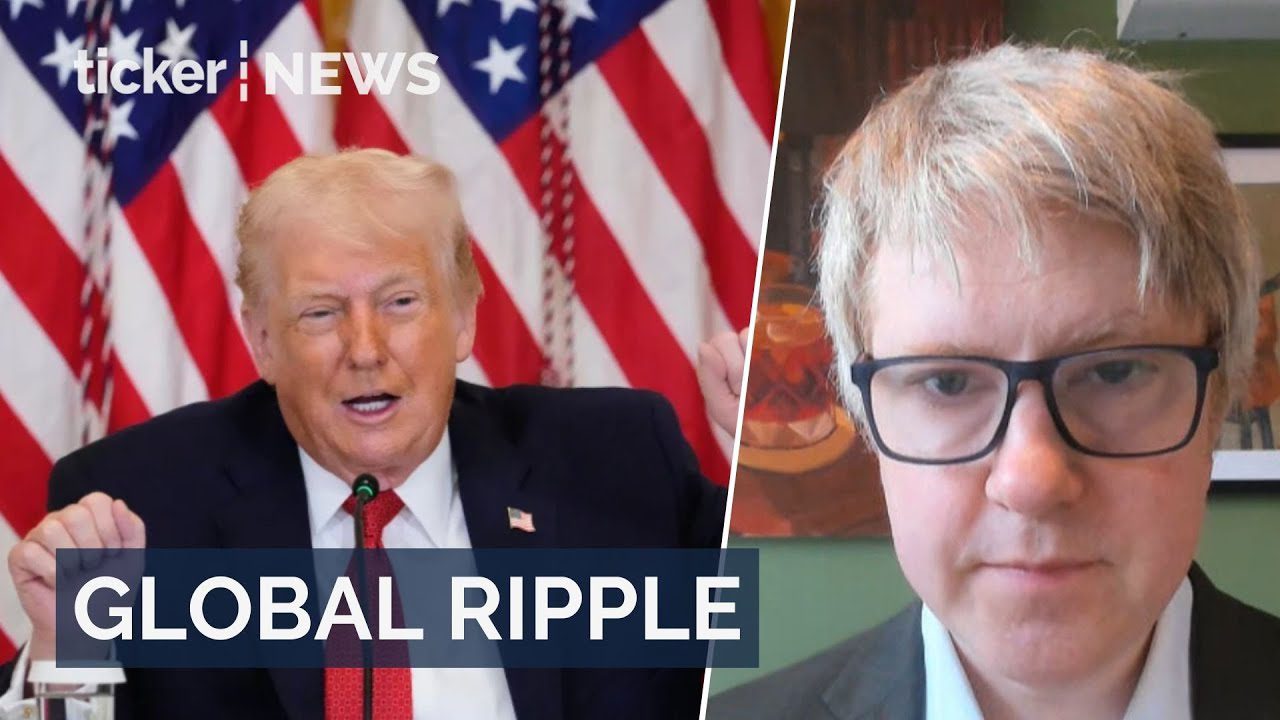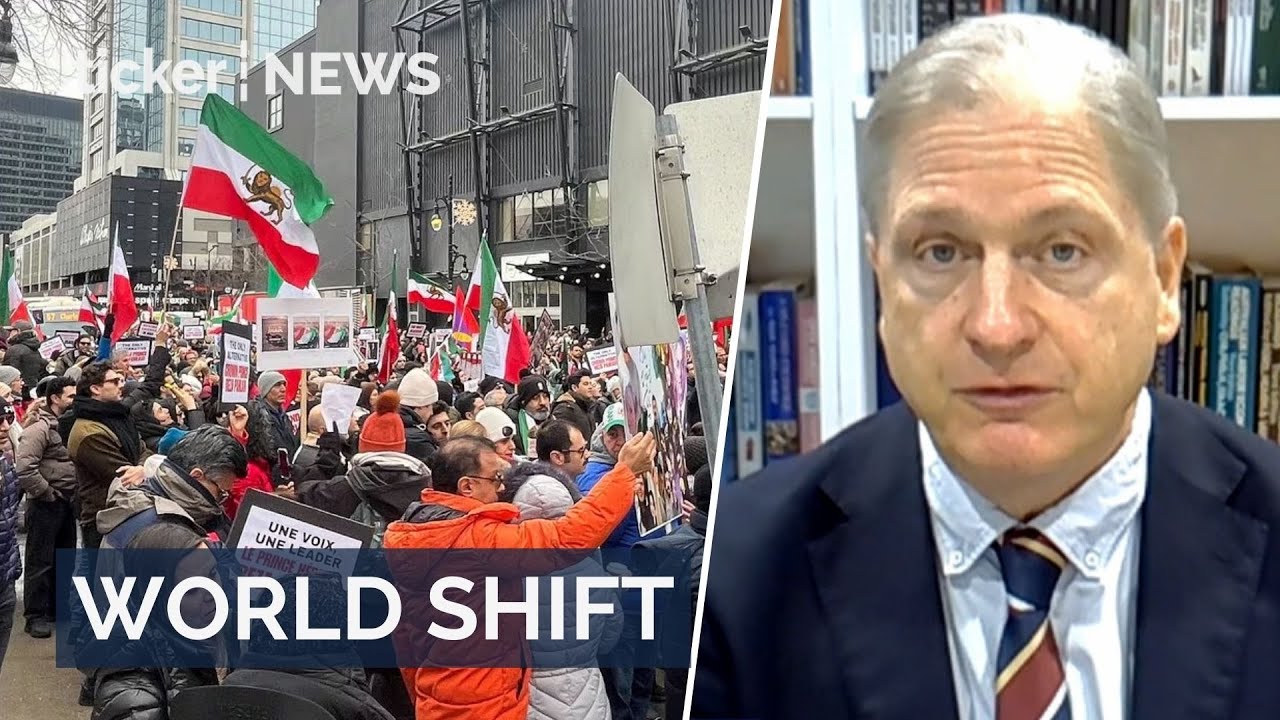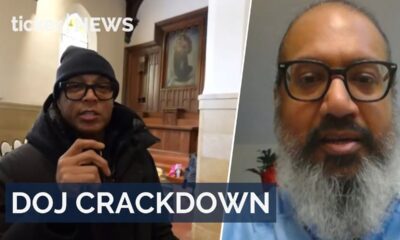Samuel Garrett, University of Sydney and Ava Kalinauskas, University of Sydney
With Republicans now in control of both the Senate and House of Representatives, Congress has so far shown little sign it will stand in Trump’s way.
The judiciary is the other branch of government that can check the power of the president. However, the Trump administration has appeared increasingly willing to simply ignore decisions handed down by judges.
There has also been a notable lack of unified opposition from the Democratic Party.
Congressional Democrats are demoralised and deeply divided over how to respond to Trump. They face criticism, too, over their apparent lack of strategy.
This has led some to ask why the United States lacks a formal political opposition leader.
How opposition leaders operate in other countries
In the American political system, the loser of the presidential election doesn’t retain a position as leader of the party in opposition. Instead, they tend to disappear from view.
Kamala Harris is considering a run for governor of California — and could well attempt another run for president in 2028 or beyond. But she hasn’t remained a vocal counterpoint to Trump since he took office.
By contrast, in countries with Westminster-style parliamentary systems, such as Australia, the United Kingdom, Canada and India, the main party not in power selects an opposition leader from among their ranks. In most countries, this position is defined by convention, not law.
The opposition leader in many countries serves as the main face — and voice — of the party not in power. They work to keep the government accountable and are seen as the leader of an alternative government-in-waiting.
What it takes to lead the opposition in the US
During Trump’s first term, the Democratic speaker of the House, Nancy Pelosi, was widely recognised as the de facto Democratic opposition leader.
A skilled negotiator, Pelosi was largely able to unite the Democrats behind her to lead the opposition to Trump’s legislative agenda — famously ripping up a copy of Trump’s State of the Union address on the House podium in 2020.
As Senate majority and minority leader, Republican Senator Mitch McConnell successfully blocked swathes of legislation during Barack Obama’s presidency. He even thwarted a US Supreme Court nomination.
In the 1980s, then-Speaker of the House Tip O’Neill led the Democratic opposition to Republican President Ronald Reagan’s domestic agenda, without resorting to obstructionism.
However, for an opposition figure to have this level of influence, they usually need decades of experience, political skill, and a party in control of the House or Senate.
The Democrats no longer have a majority in either chamber and are no longer led by Pelosi. Hakeem Jeffries has been the House minority leader since 2023, but without the speaker’s gavel or control of any committees, he has limited influence.
Party discipline is typically far more unwieldy in the United States compared to other countries. In Australia, for instance, crossing the floor to vote against your own party is very rare.
Unruly party caucuses make it significantly more difficult for a single party figurehead to emerge unless they command near-universal party loyalty and respect among their members in both chambers.
Will Democratic cracks shatter the party?
The Democratic caucus, already strained by Joe Biden’s late withdrawal from the 2024 presidential race, is now even more fractured.
The Democrats continue to grapple with their resounding defeat in November, which saw the party lose ground with almost every demographic across the country. Polling shows public support for the Democrats has slumped to unprecedented lows, with just over a quarter of voters holding a positive view of the party.
Most dramatically, Senate Minority Leader Chuck Schumer defied fellow Democrats (including Jeffries) by voting in favour of a resolution in recent weeks to avoid a government shutdown. His decision sparked an uproar from his party colleagues.
Visual images of the party’s disarray were also on clear display during Trump’s joint address to Congress earlier this month. While some representatives protested loudly, others followed leadership instruction to remain silent.
Democrats were in near lock-step on almost all issues during Trump’s first term, as well as Biden’s presidency. Now, some are calling on Schumer to step aside as minority leader — and for the Democrats to coalesce behind a younger, more outspoken leader such as Congresswoman Alexandria Ocasio-Cortez.
Where next for the party?
In the fractious debates now consuming the party, some see parallels with the emergence of the Tea Party movement within the Republican Party during Barack Obama’s first term in office.
The current Democratic division could result in the emergence of a stronger dissident faction within the party. And this could push a harder line in opposition to Trump, no longer toeing the line from party leadership.
Yet, while the political outlook for Democrats may appear bleak, electoral turnarounds can happen quickly in the United States.
Few expected a demoralised Democratic party to turn John Kerry’s heavy defeat to George W Bush in 2004 into a generational victory just four years later. Similarly, after Obama decisively won reelection against Mitt Romney in 2012, few Republicans could have predicted they’d soon be back in power with Trump.
But, as was the case 20 years ago, the soul-searching process will be painful for the Democrats. Whether it’s Ocasio-Cortez or another figure, the 2026 midterm elections are likely to be the best opportunity for a new central leader to emerge on the national stage.![]()
![]()
Samuel Garrett, Research Associate, United States Studies Centre, University of Sydney and Ava Kalinauskas, Research Associate, United States Studies Centre, University of Sydney
This article is republished from The Conversation under a Creative Commons license. Read the original article.























